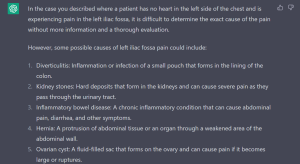How does putting pressure or tension on a developer lead to a decrease in their coding ability by reducing their thinking power, comprehension power, and ability to form logical ideas?
How Pressure and Tension can Impair Coding Ability
Developing software can be a complex and challenging process that requires careful planning, attention to detail, and technical expertise. However, when developers are under pressure or tension, their ability to code can be significantly impaired, leading to lower quality work and a higher risk of mistakes. In this article, we’ll explore how pressure and tension can impact coding ability and what developers can do to mitigate these effects.
- Reduced Thinking Power
When developers are feeling pressure or tension, their ability to think critically and creatively can be significantly reduced. This can result in less efficient problem-solving, less imaginative solutions, and a greater likelihood of making errors. When developers are not able to think clearly and logically, they are more likely to make mistakes, which can have a negative impact on the overall quality of the software they are developing.
- Impaired Comprehension Power
In addition to reduced thinking power, developers under pressure or tension may also experience impaired comprehension power. This means that they may struggle to understand complex concepts, technical requirements, or other aspects of the software development process. When developers are not able to comprehend the requirements of a project, they may struggle to deliver high-quality work that meets the client’s needs.
- Reduced Logical Forming Idea
Pressure and tension can also impair a developer’s ability to form logical ideas. This means that they may struggle to come up with effective solutions to complex problems or to identify the most efficient ways to achieve specific goals. When developers are not able to think logically, they may end up wasting time on ineffective strategies or creating software that does not meet the client’s needs.
- Increased Stress and Anxiety
Feeling pressure or tension can also lead to increased stress and anxiety levels, which can further impair coding ability. When developers are stressed or anxious, they may struggle to focus on their work, may experience physical symptoms such as headaches or stomachaches, and may be more likely to make mistakes or miss important details. This can have a negative impact on the quality of the software they are developing and may even lead to missed deadlines or lost clients.
- Lack of Motivation
When developers are under pressure or tension, they may also experience a lack of motivation to complete their work. This can be due to a sense of overwhelm or frustration, or simply a feeling of being unable to meet the expectations of the client or employer. When developers are not motivated to complete their work, they may struggle to focus, may procrastinate, or may simply not put in the effort required to produce high-quality software.
- Negative Impact on Team Dynamics
In addition to the negative impact on individual developers, pressure and tension can also have a negative impact on team dynamics. When one member of a team is under pressure, it can create a sense of stress and tension for the entire team. This can lead to communication breakdowns, reduced collaboration, and a lack of trust among team members. When team dynamics are negatively impacted, the quality of the software being developed can suffer, leading to lost clients or missed opportunities.
- Mitigating the Effects of Pressure and Tension
While pressure and tension can have a significant impact on coding ability, there are steps that developers and employers can take to mitigate these effects. For example, developers can prioritize self-care activities such as exercise, meditation, or spending time with friends and family to help reduce stress and anxiety levels. Employers can also provide additional support to developers, such as flexible working hours or additional training opportunities to help reduce the sense of overwhelm or frustration.
In conclusion, pressure and tension can have a significant impact on coding ability, reducing thinking power, comprehension power, and logical forming ideas, among other effects. However, by prioritizing self-care and
In conclusion?
In conclusion, pressure and tension can have a significant impact on coding ability, reducing thinking power, comprehension power, and logical forming ideas, among other effects. However, by prioritizing self-care and implementing supportive measures, such as flexible working hours or additional training opportunities, developers and employers can mitigate these effects and improve the quality of the software being developed. It’s important for everyone involved in software development to recognize the potential impact of pressure and tension and take proactive steps to address it, ensuring that the end result is a high-quality product that meets the needs of clients and end-users.
now enlist what are the main diseases or disorders they can meet – a subtitle to the above article; and explain each of them
Sure, here are some potential diseases or disorders that can arise from experiencing pressure and tension as a developer:
- Burnout Burnout is a state of emotional, physical, and mental exhaustion caused by prolonged stress and pressure. When developers are consistently under pressure or tension, they may be at risk of developing burnout. Symptoms of burnout can include fatigue, insomnia, irritability, and a decreased ability to concentrate. Burnout can have serious long-term consequences on a person’s health and well-being, so it’s important for developers to recognize the signs and take steps to prevent it.
- Anxiety Disorders Anxiety disorders are a group of mental health conditions that involve excessive worry, fear, or panic. Developers who are under pressure or tension may be at risk of developing an anxiety disorder, especially if they are prone to anxiety in general. Symptoms of anxiety disorders can include physical symptoms such as sweating or trembling, as well as psychological symptoms such as constant worry or a sense of impending doom.
- Depression Depression is a mood disorder characterized by persistent feelings of sadness or loss of interest in activities that were once enjoyable. Developers who are consistently under pressure or tension may be at risk of developing depression. Symptoms of depression can include feelings of hopelessness, fatigue, changes in appetite, and difficulty concentrating.
- Insomnia Insomnia is a sleep disorder characterized by difficulty falling asleep or staying asleep. Developers who are consistently under pressure or tension may experience difficulty sleeping, which can lead to a range of negative consequences such as fatigue, irritability, and decreased cognitive function. Insomnia can also have long-term health consequences if left untreated.
- Headaches Headaches are a common physical symptom of stress and tension. Developers who are consistently under pressure may experience tension headaches, which can be characterized by a mild to moderate pain or pressure in the head. While headaches themselves may not be a serious condition, they can impact a person’s ability to work and can be a sign of more serious health concerns.
It’s important for developers to recognize the potential health consequences of experiencing pressure and tension and to take proactive steps to address them. This may include seeking medical treatment or therapy, practicing self-care activities such as exercise or meditation, or seeking out additional support from their employer or colleagues. By prioritizing their health and well-being, developers can ensure that they are able to produce high-quality work while maintaining a healthy work-life balance.
what is the advice to developer and the employer to prevent these from happening?
Here are some advice for developers and employers to prevent health consequences from pressure and tension:
Advice for Developers:
- Prioritize Self-Care: Take care of your physical, emotional, and mental health by prioritizing self-care activities such as exercise, meditation, or spending time with friends and family. This can help reduce stress and anxiety levels and prevent burnout.
- Set Realistic Goals: Avoid overcommitting to projects or tasks that may be unrealistic to achieve in the given timeframe. This can help prevent feelings of overwhelm or frustration and reduce the risk of burnout.
- Take Breaks: Take regular breaks throughout the day to rest your mind and reduce stress levels. This can help improve focus and productivity.
- Seek Support: If you are struggling with stress or mental health issues, seek support from a healthcare provider or a therapist. Talking to someone can help you process your feelings and develop coping strategies.
Advice for Employers:
- Provide Support: Provide additional support to your developers, such as flexible working hours, mental health resources, or training opportunities. This can help reduce the sense of overwhelm or frustration and prevent burnout.
- Set Realistic Expectations: Set realistic expectations for project timelines and workload to prevent excessive pressure and tension.
- Foster a Positive Work Environment: Foster a positive work environment that values open communication, collaboration, and mutual respect. This can help prevent communication breakdowns, reduce tension among team members, and improve the overall quality of the work being produced.
- Encourage Self-Care: Encourage your developers to prioritize self-care activities such as exercise or meditation, and provide resources to support these activities.
By implementing these strategies, developers and employers can work together to prevent the negative health consequences that can arise from experiencing pressure and tension in the workplace. By prioritizing the well-being of developers, employers can also improve the quality of the work being produced and create a positive and productive work environment.
In conclusion, pressure and tension can have a significant impact on both the mental and physical health of developers, leading to a range of negative consequences such as burnout, anxiety disorders, and insomnia. These health issues can impair thinking power, comprehension power, and logical forming ideas, among other cognitive functions, which can have a negative impact on the quality of the software being developed. However, developers and employers can take steps to prevent these consequences by prioritizing self-care, setting realistic goals, taking breaks, seeking support, and providing additional support and resources. By recognizing the potential impact of pressure and tension, and taking proactive steps to address it, developers and employers can create a positive work environment that prioritizes the well-being of their team while still delivering high-quality software that meets the needs of clients and end-users.





